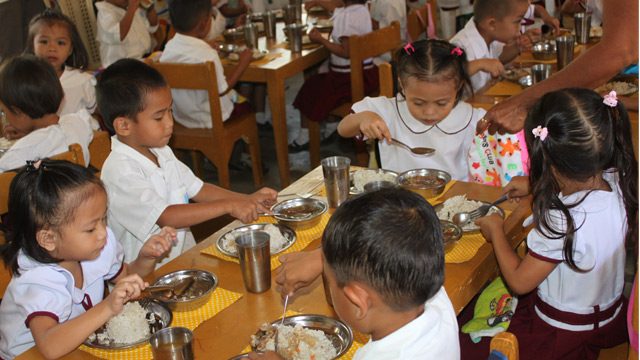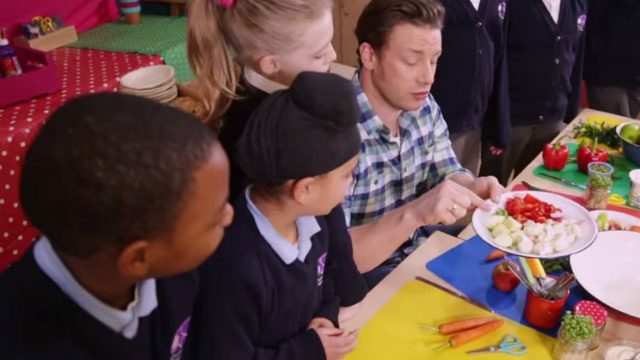SUMMARY
This is AI generated summarization, which may have errors. For context, always refer to the full article.

MANILA, Philippines – In the fight against obesity, it is best to get the most affected involved: children.
More than 40 million children under 5 years old around the world have been affected by the “global epidemic of obesity.”
In the Philippines, the National Nutrition Survey (NNS) results show that obesity is the highest among Filipino youth aged 11 to 19 years old with a prevalence of 8.3%. Meanwhile, 3 out of 10 Filipino adults are obese with 38% living in the National Capital Region (NCR).
This problem, along with undernutrition, is tagged by the World Health Organization as “double burden malnutrition.” This refers to insufficient or excess intake of dietary energy requirements – a sign of bad eating habits. (READ: Too little, too much: The problem with double burden malnutrition)
Educating the affected
The younger generations should be well equipped with the right information to engage in ending problems related to food.
For international celebrity chef Jamie Oliver, this can be done by putting practical food education on the standard school curriculum. The recent alarming rise of diet-related diseases – diabetes and hypertension, among others – is enough proof to push for food education.

His campaign Food Revolution Day (FRD) calls for stakeholders – government officials, school administrations, and even teachers – to heighten the importance of knowing and practicing best food habits.
“By educating children about food in a practical, fun and engaging way, we can provide them with the knowledge and skills they so urgently need to lead healthier, happier lives,” he said in a statement.
The FRD’s main event is every 15th of May annually with activities such as cookouts where classes take part in cooking recipes developed by Oliver himself and various discussions across participating schools about the role of education in eliminating the double burden of education.
Meanwhile, celebrities have also joined in the call as seen in the recent video released where artists such as Ed Sheeran and Paul McCartney, among others, sing for better food education.
Food education in the Philippines
Oliver’s campaign hopes to make food education a “compulsory part of every school curriculum across the world.”
Some examples of countries already teaching school children the proper ways to grow, source, cook, and consume food products are Japan, England, Brazil, Mexico, and Finland. These are mandated by policies embedded in laws pertaining to schools and child health.
The concept of food education isn’t new to the Philippines.
The main thrust of the Department of Education (DepEd) pertaining to food education is evident under the School Health and Nutrition Programs (SHNP). These programs seek to maintain and improve the health of children enrolled by preventing diseases, promoting health-related knowledge, attitudes, skills, and practices.
Feeding programs done in select schools also include sessions that teach school children the proper food habits – what to eat, how much, and other alternatives. (READ: How is gov’t managing school feeding program?)
However, it is entirely different when it comes to curriculum-based education.
Home economics, otherwise called Technology and Livelihood Education (TLE), taught in primary and secondary levels touch on concepts pertaining to food. But the levels of teaching – and depth – are not uniform among all schools.
The classes mostly focus on applications – cookery and proper food handling – but not so much on the nutritional factor of food products.
With the K to 12 program of the DepEd slowly getting past its birthing stage, it is best to consider food education as a viable solution to malnutrition. – Rappler.com
Add a comment
How does this make you feel?
There are no comments yet. Add your comment to start the conversation.